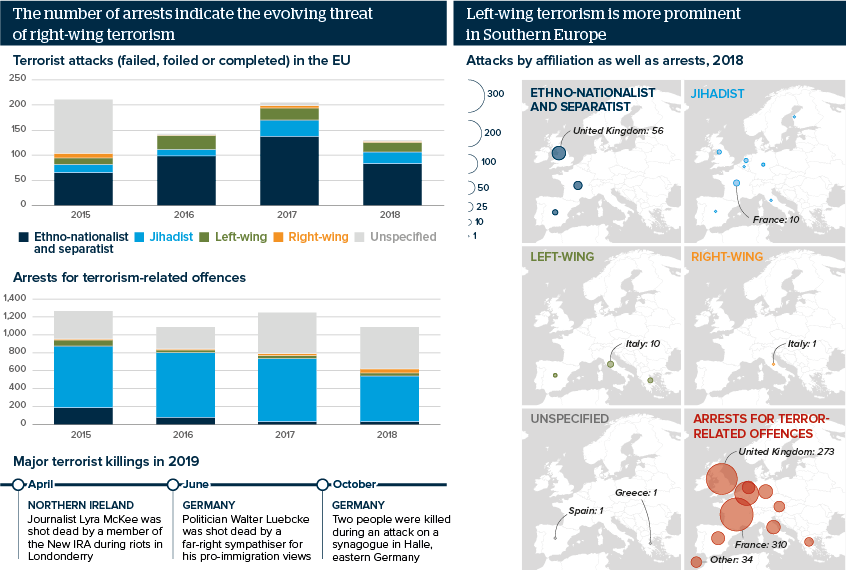Tackling terrorism in Europe will become tougher
The variety of terrorist threats and operational challenges are complicating counter-measures
Source: Europol
Outlook
Despite a recent decline, the jihadist threat in Europe will not disappear. Al-Qaida and Islamic State affiliates remain powerful in conflict areas despite some setbacks. They occasionally instigate attacks on European soil. Turkey’s decision to deport foreign fighters will also increase fears of radicalisation within Western countries.
This is compounded by the rise of left- and right-wing terrorist threats and increasing operational challenges. The rise of lone attacks and small cell mobilisation, the use of unregulated online platforms to spread messages and recruit, and the apparent role of prisons in the radicalisation process make tackling terrorism more complex.
Impacts
- Loyalist paramilitaries in Northern Ireland could react violently to Boris Johnson’s Brexit deal, potentially triggering wider unrest.
- The ongoing crackdown on illegal immigration by European governments should slightly reduce the far-right terrorist threat.
- However, it also increases the chances that some Western communities will become less tolerant of immigrants.
- The deepening political polarisation across Europe gives extremists the opportunity to put forward and ‘legitimise’ their views.
See also
- Far-right extremism is becoming more transnational - Dec 3, 2019
- Prospects for the United Kingdom in 2020 - Nov 26, 2019
- Germany will intensify its counter-extremism policy - Sep 26, 2019
- More graphic analysis
